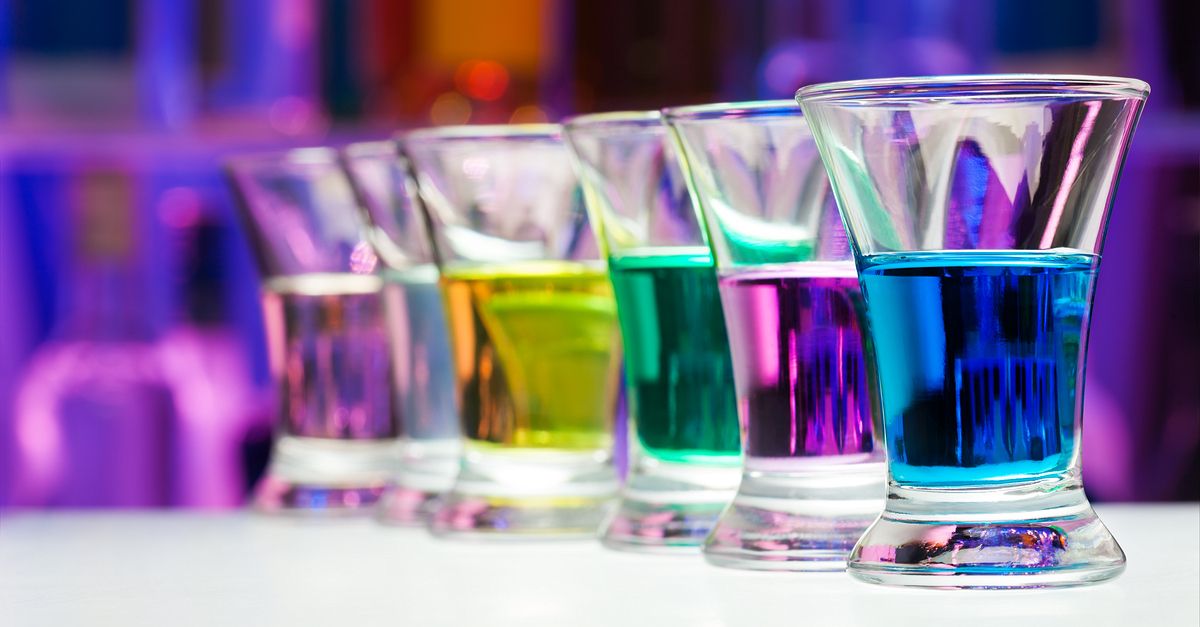A discreet sign posted at one restaurant in St. Petersburg, Florida, instructed women to order an "angel shot" if they felt they were in danger, or needed access help or to be escorted to an Uber.
This practice does not appear to be widespread but depends upon a venue's staff being knowledgeable and trained to respond effectively, and abusers may know as much about the concept as potential victims.
One of the more common genres of modern folklore involves code or tricks that people in the know can employ against potential abusers to furtively summon help, exemplified most recently by a spike in chatter about the purported life-saving abilities of "angel shots" — a surreptitious device by which women who feel threatened by their dates can signal their need of assistance by issuing a code phrase under the guise of ordering a drink.
Multiple news outlets promised to teach women how to use an "angel shot" to get out of a dangerous spot, and countless social media users shared the advice:
Redbook and Good Housekeeping were among those promoting the concept, the latter writing that:
If you've ever been on a bad date and needed an "emergency" excuse to walk out the door, then you'll be even more relieved by a new, helpful trend sweeping bars across the globe. Not only are waitstaff helping women flee a bad date, they want to help keep you out of harm's way.
At Iberian Restaurant in St. Petersburg, FL, this means there is a discreet sign in the women's restroom that reads "Is your Tinder date not who they said they were on their profile? Do you feel unsafe or even just a tad bit weird?" If so, the sign advises, order an "angel shot."
Wait, what is this mysterious drink? Well it's actually not booze at all. It's a code that will discreetly tell the bartender you need help, the Tampa Bay Times reports.
Here's how it works: Order an angel shot neat and a bartender will escort you to your car. Ask for it with ice and the bartender will call a taxi or Uber for you. Order it with lime and the restaurant staff will call the police.
Apparently this code word was inspired by a similar movement in London, where women are "asking for Angela" to signal an unsafe situation during a date. It was created by The Lincolnshire Rape Crisis, a support service for women and girls in East England.
We have not been able to verify the claim that "angel shots" are a "trend" that is "sweeping" bars, nor was that claim supported by examples provided in these viral articles. According to reports, this plan has been implemented only at a single venue in St. Petersburg, Florida, but the (hardly new) concept was represented as an escape hatch available to all women in any dangerous situation anywhere. Moreover, even the bar in question said no patrons had ever made use of the concept:
So far, Iberian Restaurant's owner Russell Andrade said no one has had to use the angel shot order. "I'm surprised to hear people are just talking about this," he [said]. "We didn't put the sign up for any attention. That sort of goes against the point."
The "angel shot" concept as broadly applied seems to have some less thought-through aspects. For one, issuing a clandestine call for help would generally only be necessary if a woman were within earshot of the individual she felt endangered by; otherwise, she could openly and directly ask for help instead of having to depend upon the chance that the bartender on duty knew the meaning of the "angel shot" code and that venue staff were trained to respond to it effectively.
Another issue is that the viral online spreading of a piece of a lifesaving advice that depends (at least to some extent) on its covertness makes that advice equally available to putatively scary Tinder dates who might react to its attempted use with anger, thereby prolonging or worsening a bad situation before help can intervene:
Another issue is that the viral online spreading of a piece of a lifesaving advice that depends (at least to some extent) on its covertness makes that advice equally available to putatively scary Tinder dates who might react to its attempted use with anger, thereby prolonging or worsening a bad situation before help can intervene: Unchanged: The "angel shot" concept as broadly applied seems to have some less thought-through aspects. For one, issuing a clandestine call for help would generally only be necessary if a woman were within earshot of the individual she felt endangered by; otherwise, she could openly and directly ask for help instead of having to depend upon the chance that the bartender on duty knew the meaning of the "angel shot" code and that venue staff were trained to respond to it effectively. Another issue is that the viral online spreading of a piece of a lifesaving advice that depends (at least to some extent) on its covertness makes that advice equally available to putatively scary Tinder dates who might react to its attempted use with anger, thereby prolonging or worsening a bad situation before help can intervene.
Items of this sort touch on the prospect of clever workarounds to escape dangerous scenarios, with previous examples including the "Black Dot" campaign, asking Siri to "charge my phone to 100 percent," calling 911 and pretending to order a pizza, and leaving a phone off its cradle to summon police. All these notions exhibit the same weak points (i.e., scant reliability, widespread exposure) with little evidence that they have ever helped anyone to safety.

